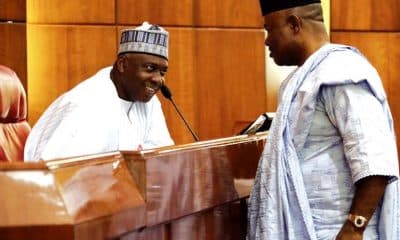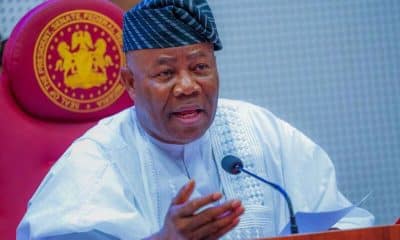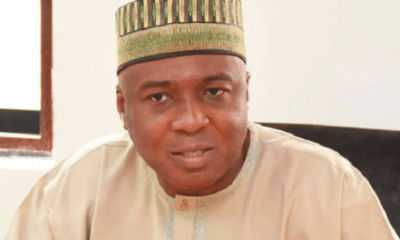Politics
Senate Buhari’s men over uncovered e-passport scam
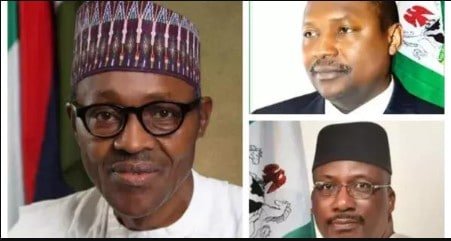

The Senate has summoned the Attorney General of the Federation and Minister of Justice, Mr. Abubakar Malami; Accountant General of the Federation, Mr. Ahmed Idris; Minister of Interior, Lt.-Gen. Abdulrahman Dambazau (retd.); and four private companies to appear to explain a multi-billion naira e-passport production deal.
According to Punch the four companies have been engaged by the Nigeria Immigration Service in a public private partnership arrangement over the years.
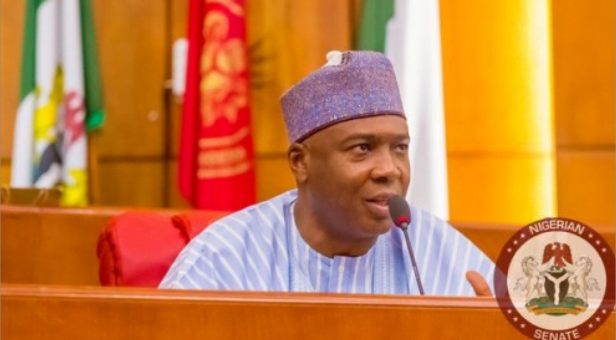
The Senate President Bukola Saraki preciding over a house sitting
The invitees are to appear before the Senate Ad Hoc Committee on Alleged Misuse, Under Remittance and Other Fraudulent Activities in the Collection, Remittance and Expenditure of Internally Generated Revenue by Ministries, Departments and Agencies.
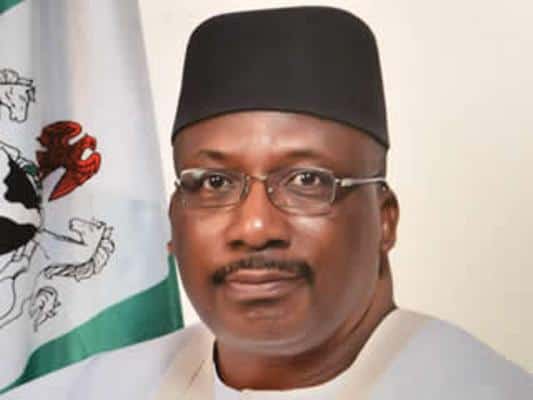
Minister of Interior, Lt.-Gen. Abdulrahman Dambazau
It, however, alleged that the companies were “withholding a hefty percentage of revenue that would have accrued to the Federal Government.”
Adeola, at a sitting by the Senate committee on Thursday, was said to have invited various public officials and corporate organisations, following the presentation made by the Comptroller General of the NIS, Mr. Mohammed Babandede, on the revenue profile of the service “and how various revenues generated, running into billions of naira and dollars, were shared by the companies, the NIS and the Federal Government.”
The Chairman of the committee was quoted to have confirmed from the Immigration boss that the service could now undertake the services provided by the companies as a way of increasing revenue accruing to the government.Adeola was quoted as saying,
“I am at a loss on why a huge part of the revenue generated by the NIS continued to be paid to private firms in the name of PPP, which should actually be based on Build, Operate and Transfer. We cannot be denying Nigerian people benefits that would accrue to them through increased revenue to government coffers instead of huge earnings for private concerns. This is an area that government can generate huge revenue. There is the need to get clarifications on this issue from all the parties involved.”

Attorney General of the Federation and Minister of Justice, Mr Abubakar Malami
Babandede, in his presentation, was quoted to have disclosed that the reasons for entering into a PPP arrangement by the government was due to inadequate funding, late release of budgeted sums, multiple acquisition of travel documents and poor revenue generation.
He added that private partners provided all the funding while money realised in course of issuing facilities was shared with government in order to allow private partners recoup their investment.

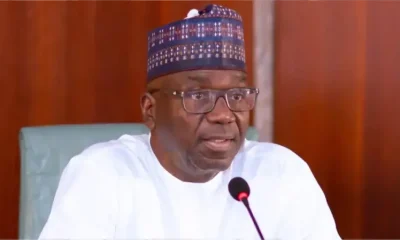

![Saraki, Shehu Sani, Anyanwu, Other 8th Assembly Lawmakers Meet In Abuja [Photos]](https://www.naijanews.com/wp-content/uploads/2025/03/Saraki-and-8th-Assembly-members-6-400x240.jpeg)
![Saraki, Shehu Sani, Anyanwu, Other 8th Assembly Lawmakers Meet In Abuja [Photos]](https://www.naijanews.com/wp-content/uploads/2025/03/Saraki-and-8th-Assembly-members-6-80x80.jpeg)
